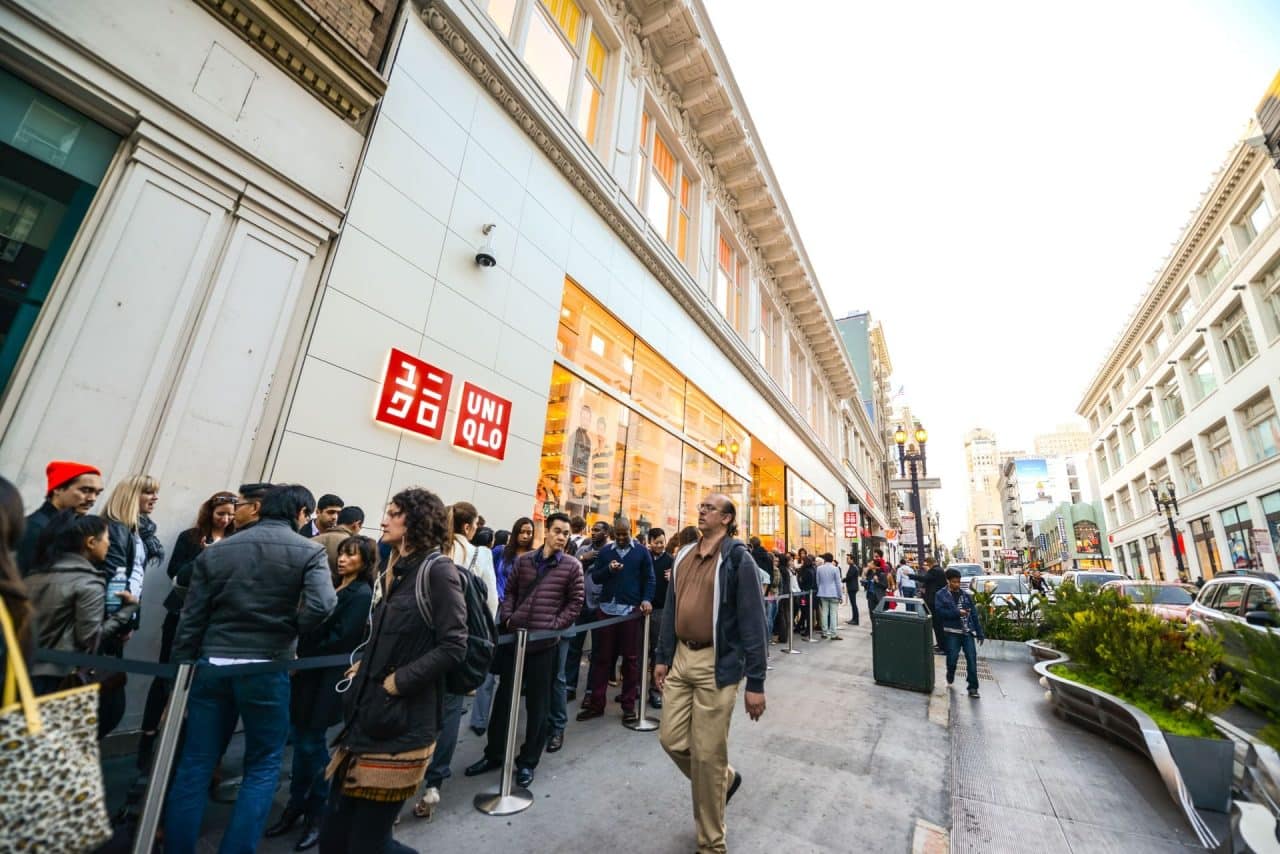Over the past several years I’ve noticed a growing phenomena both in my own personal experiences, as well as in the world at large: an ever-widening gap between Millennials and the church. There are many points on this gradient of "the church”, so I admit there may seem to be some sweeping generalities here, but rest assurred they’re not intended.
Now before we get too deep, let me be clear: I grew up in the [protestant] church.
Or "The Church." And perhaps others reading can relate to why I might even make that distinction. But for the sake of this article, let’s agree to set our capitalization differences aside…we will treat them the same, despite the bazillion splinters & differences amongst the church, The Church, denominations, religion, faith and where it all crosses (quite messily).
With that out of the way, let’s first agree that there’s really a lot to it, with many different factors, experiences and perceptions at play, but all that withstanding: let's take a deeper look at this growing gap, what’s at the root of it, and why Millennials & the church seem to be having such a hard time engaging with each other with the same level of passion Millennials are known for.
First a brief, anecdotal backstory of my own: My wife and I wanted to get our infant son baptized. No big deal, right? I grew up in protestant churches. My wife grew up in the Catholic church. Like your typical Millennials, we decided to forego the whole idea of a “church wedding” as we didn’t feel that our union together was about a church or a big fancy expensive hoopla. Really, we didn’t feel it was about much of anyone except us. We wanted the commitment and togetherness, but we just didn’t see the point of months and months of tedious planning and detailed minutiae. Call us crazy.
When it came to baptizing our infant son, my wife [initially] really wanted this to be done in a Catholic church and that was fine by me. As we began to search for a venue, we were told time and time again that we didn’t meet some sort of criteria, such as:
- We weren’t married in a Catholic church
- The godparents weren’t Catholics. This, even though one of our son’s godparents had in fact grew up in the Catholic church, been baptized as a child in it (being from a latin family and all), etc etc, but they now attend a protestant church, and are thus now considered "not Catholic”…by the catholic church.
- The godparents weren’t married in a Catholic church.
- We weren’t “members” of their Catholic church. We couldn’t even entertain becoming a “member" without a referral letter from another church that we went to. (First time I’ve ever heard this one - a referral letter is needed to participate in a church? Really? I thought that was needed to see a specialist for that weird growth on your foot.)
So up, down, left, and right, we were turned away without any real option or doorway for us to become a part of these “communities." Somehow, there was always some old rule in the way of us not simply being able to bring our child in for a simple baptism (and/or be simply welcomed in to participate).
Now, I’ve been wanting to write this very article for many months, and this whole event really had me taking notes, observing first-hand just one of the many ways I’ve noticed this gap getting wider and wider between me, and the church (and faith) I’ve clinged to for so long (and many times, even when I didn’t want to).
Astonishingly, not one of these churches ever invited us to visit their church, join their community, or simply have a cup of coffee together so we could see how maybe we fit into their bigger picture. Rather, it was a never-ending string of “gotchas” that we couldn’t get in, or around, as a simple, young Millennial couple looking to engage a church for, and — if I put my marketing strategy hat on for a moment — what you could consider a potentially excellent entry point to draw us in.
The old, dusty rules — which I’m also certain aren’t derived from Biblical scripture (Fun fact: I’ve actually read that old book many times, front to back) — somehow still applied. They simply weren’t having us.
But isn’t this the point of the church in the first place? A safe-haven for anyone to experience, work through, walk, and grow together in faith, even if we don’t meet a certain set of "club criteria"?
My wife’s frustration was resounding: “I feel like the Catholic Church has abandoned me."
A LACK OF RELEVANCY
This one single story from my own life far from encapsulates my many observations over the years of just how far out of touch with culture the church at large has become. Perhaps this is why new shows like The Young Pope (HBO/Sky), a racy, sardonic, satirical take on essentially the Catholic Church — yes, big C’s there — have been reportedly the highest watched show in Italy when it originally premiered. In Italy(!), home of the Roman Catholic church. Wouldn’t you think they’d be up in arms over there? No, they are, interestingly enough peering under the rock of this show to see what’s underneath.
The mass exodus of Millennials from the church can, for one, be attributed to their disenfranchised feelings towards the church and its ideologies — due in large part to a lack of relevancy to their lives and way of being.
Millennials are more likely than any other living generation to have negative views of the church and organized religion of any flavor due to the free-willed, DIY attitude they have had to evolve into. This has caused a ripple effect, making an significant indentation on church attendance. According to a 2016 report by the Pew Research Center, Millennials' rating of churches (and other religious organizations) has dropped by 18% since 2010. Ironically, 18% less Millennials also believe religion is very important (41%) versus Baby Boomers (59%).
This decline can also be attributed to Millennials prioritizing their own personal independence, experiences, and derived “knowledge” over following pre-determined doctrine. Compared to older generations, Millennials are exponentially more concerned with the short-term — they’ve had to be — opting for living in the here-and-now, rather than “investing” now for their future.
Our Millennial generation is really searching for more: more relevancy, more understanding of modern culture, more appreciation for the world they live in.
52% of American Millennials DO believe in a God of some kind, the desire for something greater in their lives certainly isn’t lacking. They just don't need fancy fog machines, light shows, rock music, and the many other “tricks” churches often use in their messaging & marketing for the church to feel “relevant”.
Rather, just a humble demonstration of the church wanting to be a part of, not separate from, our culture can be a solid start. A true, concerted attempt to understand us. To engage us. To even simply try to care about some of the same, often human-condition-centric issues we do.
In other words: to not talk AT us, but WITH us.
THEY'RE NOT ALL BADThis isn't to say their aren’t churches out there that do well in remaining relevant to and attentive of issues at the heart of Millennials' way of being.
I myself have been to churches like
Jacob’s Well in Kansas City, an emergent church who’s deep attention to social justice issues, and looking at life more as a journey (
Pilgrim’s Progress anyone?) then a set of step-by-step, self-help principles to check off a list (as if life is ever that clean and simple).
North Coast Calvary Chapel (Carlsbad, California) is another good example. Despite the small-sounding name, the church is a rather large body of folks, culturally-tuned to SoCal’s vibe, with a bevy of offerings and openings into their community for Millennials, married or not, questioning or not, purple space alien or not. This isn’t a “seeker church” per se, but if you want an easy entrance to the church (and faith, more importantly), this Millennial-friendly, culture-aware option exists for you.
I know, I know: that’s only two examples (from my own personal experiences on my own journey), there are others throughout the U.S. that have started to figure It all out. (If you know of others,
let us know, we'd love to hear from you!)
For those churches who’ve started to figure this out, realizing it isn’t just about “come to a service” is key. It’s about relationships. There’s a lot going on in culture & communities, and we Millennials know that…we’re already there, we’re down in it.
Faith folds perfectly into The Journey of Life, yet churches seem to fall back on the old guard’s idea of a focus on themselves, the church, more than the faith journey & experience aspect — the idea that perhaps, we are all part of one great body, and one greater, worldwide church of sorts. The name on the local building really doesn’t matter any more, just as I don’t care really about getting insurance through a local agent like my parents did, I just care about having the insurance I need (and not having to waste time finding it).
MILLENNIALS LOVE EXPERIENCE, THEY THRIVE ON IT, AND IN IT
Why do you think EDM has had such a wave in the U.S. and also globally the past few years, and music festival attendance has been at an all-time high?
If the church itself isn’t there engaging side-by-side, hand-in-hand with Gen Y, then Millennials just won't see them as part of their personal “tribe” — a concept that is extremely-important in understanding and engaging with Millennials. Thanks in large part to how social media has shaped the Millennial generation, and their way of being, the idea that we’re far more of a tribal generation than all those before is truly key in understanding how best to understand and engage Generation Y. We are far more likely to check on what others like friends and social connections have to say about you first, then to respond to that direct mail postcard you sent out telling us about your church’s upcoming Easter service.
IN CONCLUSION, HOW CAN CHURCHES START TO BRIDGE THE GAP?
While we could leave this at “it’s complicated” status, and move on, let me recap. Here’s a few main ideas that are the entry points for churches dealing with this issue: how to market (I know, sounds like a dirty word in this realm doesn't it?), and better yet, how to engage this massive generation. All is not for loss, there’s still hope for the church; it is not too late to rebuild its eroding body and close the gap.
1. Authenticity and relevancy to the culture in which we live — not the one we wish it was, or what we remember it being like 20 years ago — absolutely must exist 100% of the time, in every message.
Without genuine, authentic points of connection for Millennials, the entire generation will be missed, as we are far more in tune with filtering messages than all generations before us…because we have to be. With the number of messages Millennials are hit with every hour via the web, social media, and everything in-between, our filter is extremely tuned to quickly filter out the inauthentic sales messages a church living under the old guard might send our way.
2. Transparency, please.
Millennials hate the idea of judgement as a whole, and lean much more towards the idea that everyone should be accepted for who they are. This requires realness and transperancy from all sides for this to work in favor for your church body, and your church marketing efforts. I know, I’m only skimming the tip of the iceberg here and this point alone could be discussed for hours (which I’m totally open to, by the way).
3. “Club Members Only” mentality has to be retired, completely.
Simply put, the walls need to be broken down regardless of denomination, protestant or catholic, flavor or whatever…this sort of exclusivity to access to God and faith and all things in-between can’t be present if a true desire to welcome this massive generation into your church’s doors exists.
4. Engage Your Community
Churches can also re-establish themselves as leaders for Millennials by putting more focus on giving back to their local community, and engaging in social justice issues as key demonstrations of faith in the modern era.
Recent surveys show that Millennials would rather utilize their small amount of free time outside of their demanding jobs helping their community.
As an example, one church helping Millennials to engage in this way is the Northbrook, Illinois-based Lutheran Church Charities (LCC). LCC launched a new ministry aimed at reaching Millennials by working with non-profit organizations and implementing community volunteer programs.
The program LCC built, called “ACTS" (Action, Compassion, Teamwork, Service), provides ways for Millennials (and anyone else) to service their community. This unique ministry helps fill a void in a way that encourages participants to continue serving, even outside of official ACTS events. As a direct result of this program,
LCC has seen Millennials flock to their church every week.
As I’ve said many times, this is indeed, a complicated subject. But if we don’t all start working towards repairing this widening gap, we will eventually end up in a too-far-gone state, and if I thought that was a good idea, I wouldn’t have bothered penning this article.
Yes, I run a
Millennial-focused startup marketing agency, but I chose not to focus on why your social media presence needs to be better, or your website needs to be more relevant, or any of the number of other avenues & tactics we use to help our clients build and grow, because it always comes down first and foremost to your brand — and your church’s — Why, more than the What. If the Why — the heart of it all — isn’t right, then how you market to and work to engage Millennials simply won’t matter.
So let’s start there: at the Heart.
Cheers,

Curt Cuscino
Founder & Principal
HypeLife Brands (LA x SD)
SOURCES:
SaveSaveSaveSave





